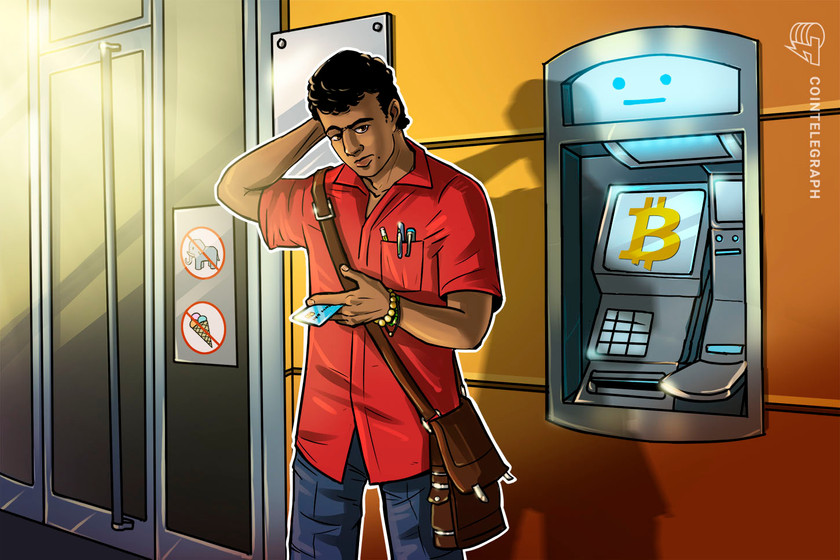More than 3,600 Bitcoin ATMs went offline to record largest monthly decline


With 3,627 crypto ATMs going down last month, March 2023 becomes the month with the largest monthly decline of crypto ATMs.
Contradicting the growing global Bitcoin (BTC) adoption rate, physical ATMs dedicated to fiat-crypto conversions are on the decline. In March alone, 3,627 crypto ATMs were removed from the network, bringing down the total ATMs to 33,727.
In the decade since the first Bitcoin ATM was launched on Oct. 29, 2013, the net change of cryptocurrency machines installed and removed monthly remained positive most times — implying that total crypto ATMs worldwide were steadily increasing. However, the trend is reversing, according to data from Coin ATM Radar.


As shown above, net crypto ATM installations declined for four months between September 2022 and March 2023. However, with 3,627 crypto ATMs going down last month, March 2023 stands out as the month with the largest monthly decline.


The chart above shows the number of Bitcoin machines installed over time, revealing the sudden drop in the total crypto ATMs. The significance of this reduction seems enormous, considering that the highest number of ATMs installed in a month was 2,048 — back in January 2021.


On the bright side, April broke the three-month-long downtrend by recording 37 crypto ATM installations on April 1. Current market leaders in manufacturing crypto ATMs are General Bytes, BitAccess and Genesis Coin.
Related: Bitcoin ATM maker shuts cloud service after user hot wallets compromised
After losing customer funds in a “security incident” in March that saw its customers’ hot wallets accessed, General Bytes promised to reimburse the losses.
Magazine: Web3 Gamer: Shrapnel wows at GDC, Undead Blocks hot take, Second Trip
On March 17-18th, 2023, GENERAL BYTES experienced a security incident.
We released a statement urging customers to take immediate action to protect their personal information.
We urge all our customers to take immediate action to protect their funds and https://t.co/fajc61lcwR…
— GENERAL BYTES (@generalbytes) March 18, 2023
“We have taken immediate steps to prevent further unauthorized access to our systems and are working tirelessly to protect our customers,” General Bytes said in a statement.

























